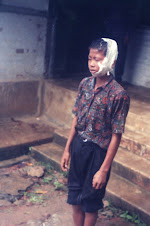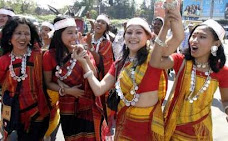ACHR WEEKLY REVIEWwww.achrweb.org/Review/2009/224-09.htmlThe United Nations Working Group of the Universal Periodic Review of the Human Rights Council is scheduled to examine Bangladesh on 3 February 2009. The government of Bangladesh has submitted its report (A/HRC/WG.6/4/BGD/1). As many as 17 stakeholders (civil society organizations), including Asian Centre for Human Rights, have contributed to the process to examine the human rights situation in Bangladesh.
Bangladesh’s submission does not appear to effectively reflect the human rights situation nor does it appear to correspond to the gravity of the critical human rights issues facing the country.
Since the submission of the report by the Bangladesh government, major changes have taken place in the country. For example, the National Human Rights Commission was established through an Ordinance and the Right to Information Ordinance was promulgated into law.
Most importantly, the Awami League won the national elections held on 29 December 2008 and a new government led by Prime Minister Sheikh Hasina has been formed since then.
In the light of these developments, the Asia Coalition on UPR submits the following to be raised at the Working Group on UPR:
a. Elections in the CHTs Regional Councils:
The parliamentary elections held on 29 December 2008 and the forthcoming Union Parishad elections are to be welcomed.
However, no election has been held in the local bodies of the Chittagong Hill Tracts (CHTs). The CHTs Regional Council established in 1998 represents the people through unelected officials. The last elections in the Hill District Councils of Rangamati, Bandarban and Khagrachari were held in 1989 by then President General H M Ershad. The Hill District Councils and the Regional Council are being run by appointees of the authorities in Dhaka.
The government of Bangladesh should be asked as to when the elections in the Hill District Councils and the Regional Council will be held.
The members of the Working Group on UPR should recommend that the government of Bangladesh provide a timeline to hold elections in the Hill District Councils and the Regional Council of the CHTs.
b. Implementation of the CHTs Peace Accord
The present government of Bangladesh headed by Awami League signed the CHTs Peace Accord in December 1997.
Since that time the CHTs Accord has not been implemented. The army camps have not been withdrawn as required under Section 17 (a) of Part D of the Peace Accord and the CHT Land Commission established under Section 4 of Part D of the Peace Accord does not operate and not a single case of land dispute has been resolved.
A total of 9,780 families out of total 12,222 Jumma families who returned from India following the CHT Peace Accord have not got back their land or housing. . In May 2000, Task Force Committee identified 90,208 Jumma families and 38,156 non-tribal Bengali settler families as “internally displaced families” in CHTs
[1]. In addition, there were some 10,000 tribal IDP families who were left out by the Task Force. By including the non-tribal IDPs, the government sought to legitimize the settlement of the Muslims from the plains in the CHTs.
While the Jumma IDPs were not provided any rehabilitation or food aid, educational facilities, health care services, sanitation and safe drinking water etc, illegal settler families have been provided free rations and other facilities by the government since 1978.
[2]On the other hand, indigenous peoples and their lands continue to be targeted. In 2008, the Special Rapporteur on the situation of human rights and fundamental freedoms of indigenous people sent a joint communication calling the attention of the Government to the alleged illegal seizure of the traditional lands of indigenous communities in the CHT and systematic campaign to support the settlement of non-indigenous families in the CHTs with the active support of the security forces, with the ultimate aim of displacing the indigenous community.
[3]The government of Bangladesh should be questioned as to what measures it will take to fully implement the Peace Accord especially withdrawal of the army camps, functioning of the CHTs Land Commission and addressing the issues raised by the Special Rapporteur. The government of Bangladesh should be recommended to specify the measures to ensure full and proper rehabilitation of all the returnee indigenous Jumma refugees and indigenous IDPs.
c. Return of ‘Enemy’ Property
In 2000 the Special Rapporteur on religious intolerance, after receiving information about appropriation of property under Vested Property Act, recommended the government of Bangladesh to ensure the full restoration of the property of the Hindu community and the Hurukh/Oroan tribes.
[4]The Asian Centre for Human Rights (ACHR) in its UPR submission reported that Hindu minorities continued to be targeted and their religious freedoms violated. It is reported that some 1.2 million or 44 per cent of the 2.7 million Hindu households in Bangladesh were affected by the Enemy Property Act, 1965 and the Vested Property Act, 1974 which is empowered to identify the Hindus as enemies of the State and seize their properties.
[5] According to an estimate, approximately 2.5 million acres of land owned by Hindus was seized under the Vested Property Act until the adoption of the Enemy Properties Return Act 2001.
[6]The current government of Bangladesh led by Awami League was in power when parliament adopted the Enemy Properties Return Act 2001 with a view to restoring ownership of the lost land to the Hindu families. However the Act remains un-implemented. According to a recent study by Abul Barkat, professor of economics at Dhaka University, nearly 200,000 Hindu families have lost over 40,000 acres of land since 2001.
[7]The government of Bangladesh should outline as to what measures it will take to implement the Enemy Properties Return Act 2001.
d. Human Rights Defenders:
Delhi-based Asian Indigenous and Tribal Peoples Network (AITPN) expressed concerns about the persecution of the indigenous human rights defenders in Bangladesh. The government has been seeking to establish an Eco-Park in the Modhupur forest area under Tangail district at the cost of displacement and survival of about 25,000 indigenous Garo and Koch peoples.
On 27 April 2007, the Special Rapporteur on the situation of human rights and fundamental freedoms of indigenous people jointly with the Special Rapporteur on extrajudicial, summary or arbitrary executions and the Special Rapporteur on the question of torture asked the government of Bangladesh to investigate the killing of Choles Ritchil and the ill-treatment of Protab Jamble, Piren Simsang and Tuhin Hadima, and prosecute the guilty as well as to compensate the victims and Mr. Ritchil’s family.
In its reply submitted on 11 October 2007, the government of Bangladesh stated that a one-member Judicial Investigation Commission headed by a retired District Judge has been set up to investigate the killing of Cholesh Ritchil. Four persons belonging to Armed Forces were awarded punishments, which included removal from service and exclusion from promotion. Finally, a number of other individuals, including public officials, doctors and forest officials, had also been subject to criminal proceedings.
The government of Bangladesh should be asked to make public the report of the Judicial Investigation Commission into the killing of Cholesh Ritchil and the action taken report including details of punishments awarded to the guilty along with the names and designation of the persons facing criminal proceedings.
e. Accountability for extrajudicial executions
The stakeholders’ summary (A/HRC/WG.6/4/BGD/3) underlines that the security forces of Bangladesh have been responsible for systematic and widespread “extrajudicial executions”, arrest and routine use of torture with impunity.
AITPN noted that the continued presence and expansion of military bases is contributing to ongoing human rights violations including extrajudicial killings in the Chitagong Hill Tracts (CHT).
[8] According to human rights group Odhikar, a total of 319 persons have been killed by the law enforcement personnel during the first 23 months of the State of Emergency (11 January 2007 to 11 December 2008). Of them, 155 persons were killed by the Rapid Action Battalion (RAB) and 118 by the police.
[9]The government of Bangladesh should be asked what measures are being taken to establish accountability into the killings by Rapid Action Battalion, the police and other security forces.
f. National Human Rights Commission
The care-taker government of Bangladesh should be congratulated for the establishment of a National Human Rights Commission and appointment of the members.
The government of Bangladesh should be asked what measures will be taken to enact a law including guarantees for inclusion of religious minorities and indigenous/tribal peoples as members of the NHRC.
g. Right to Information Ordinance
On 20 September 2008, the Caretaker government approved the Right to Information Ordinance, 2008 and it came into effect on 20 October 2008 with the publication in the official Bangladesh Gazette.
The Working Group on UPR should ask the government to pass the Right to Information Ordinance in the Parliament and to provide further information about the establishment of the Information Commission provided for under the Right to Information (RTI) Ordinance, 2008 to implement the RTI Ordinance.
h. Cooperation with United Nations human rights mechanisms
The government of Bangladesh has failed to comply with its treaty reporting obligation to submit periodic reports to treaty bodies. Bangladesh’s twelfth to fourteenth report to the CERD is overdue from 2002 to 2006; initial and second report to CESCR is overdue from 2000 to 2005; initial report to HR Committee is overdue since 2001; first to third reports to CAT is overdue since 1999 to 2007; Second report to OP-CRC-AC is overdue since 2007.
[10]Bangladesh has also failed to ratify a number of key international human rights instruments including the International Labour Organization Convention No. 169 concerning Indigenous and Tribal Peoples in independent countries.
The government of Bangladesh should be asked to submit its pending periodic reports to the treaty bodies and to ratify the ILO Convention No. 169 and other international human rights instruments which it has not yet ratified.
[1]. Parbatya Chattagram Jana Samhati Samiti, Bangladesh
[2]. Asian Centre for Human Rights – South Asia Human Rights Index 2008, Bangladesh Chapter
[3]. Para 39, A/HRC/WG.6/4/BGD/2
[4]. Para 40, A/HRC/WG.6/4/BGD/2
[5]. Para 48, A/HRC/WG.6/4/BGD/3
[6]. Religious minorities vulnerable in Bangladesh: US, Hindu Janajagruti Samity, 17 September 2007, http://www.hindujagruti.org/news/3028.html
[7]. Bangladeshi Hindus loose property: study, Economic Times, 26 May 2007
[8]. Para 20, A/HRC/WG.6/4/BGD/3
[9]. 23 Months of State of Emergency in Bangladesh, Odhikar, 12 December 2008 available at http://www.odhikar.org/documents/23months_report.pdf
[10]. A/HRC/WG.6/4/BGD/2

.jpg)











